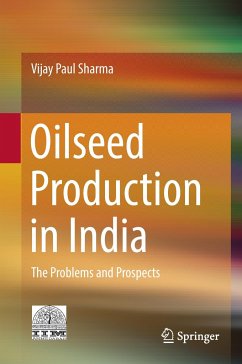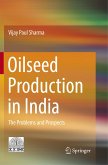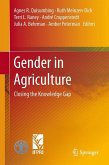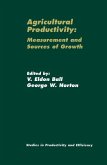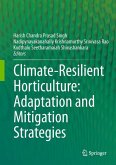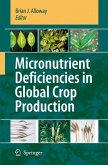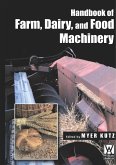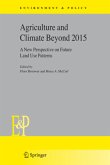This book analyses the performance and potential of India's oilseed sector, identifies the major constraints facing the industry and suggests options for increasing the country's oilseed production and productivity, taking into account the changing policy environment, increasing demand, slow growth in domestic production and rising imports.
India as the world's largest producer of oilseeds, accounts for about 7-8 per cent of global vegetable oil production. However, the growth in domestic production has not kept pace with the growth in demand. Low yields and high production and market risks due to lack of irrigation facilities and effective risk management have been responsible for widening the demand-supply gap over the years, and the country now imports more than half of its oilseed for domestic consumption. The Technology Mission on Oilseeds (TMO), launched in the mid-1980s, helped achieve self-sufficiency in edible oil production through the spread of technology and the provision of market support. However, increasing demand for edible oils necessitated imports in large quantities, leading to a substantial drain on foreign exchange. Given the competing demands on agricultural land from various crops and enterprises, the production of oilseeds can be increased only if productivity is improved significantly and farmers receive remunerative prices and have assured market access. However, farmers face various constraints in oilseed production; several biotic, abiotic, technological, institutional and socio-economic constraints inhibit exploitation of the full yield potential of crops, which need to be addressed.
The book explores these issues using data collected from about 2,000 oilseed growers: 490 soybean farmers, 316 rapeseed-mustard growers, 470 groundnut farmers, 250 sesamum farmers and 470 sunflower growers from selected Indian states. It would be of immense use for scholars and policy makers alike who are working in thisfield.
India as the world's largest producer of oilseeds, accounts for about 7-8 per cent of global vegetable oil production. However, the growth in domestic production has not kept pace with the growth in demand. Low yields and high production and market risks due to lack of irrigation facilities and effective risk management have been responsible for widening the demand-supply gap over the years, and the country now imports more than half of its oilseed for domestic consumption. The Technology Mission on Oilseeds (TMO), launched in the mid-1980s, helped achieve self-sufficiency in edible oil production through the spread of technology and the provision of market support. However, increasing demand for edible oils necessitated imports in large quantities, leading to a substantial drain on foreign exchange. Given the competing demands on agricultural land from various crops and enterprises, the production of oilseeds can be increased only if productivity is improved significantly and farmers receive remunerative prices and have assured market access. However, farmers face various constraints in oilseed production; several biotic, abiotic, technological, institutional and socio-economic constraints inhibit exploitation of the full yield potential of crops, which need to be addressed.
The book explores these issues using data collected from about 2,000 oilseed growers: 490 soybean farmers, 316 rapeseed-mustard growers, 470 groundnut farmers, 250 sesamum farmers and 470 sunflower growers from selected Indian states. It would be of immense use for scholars and policy makers alike who are working in thisfield.

